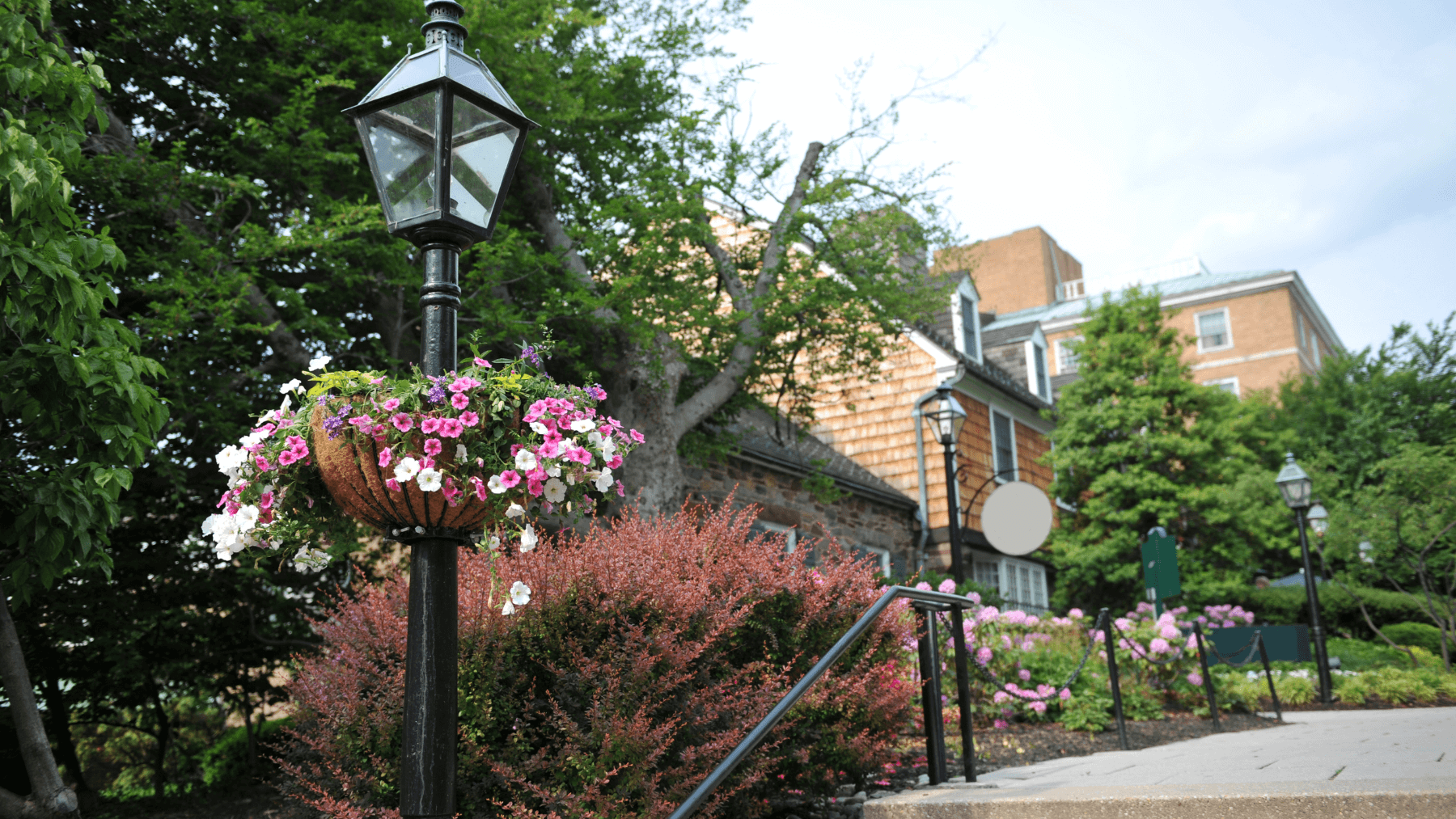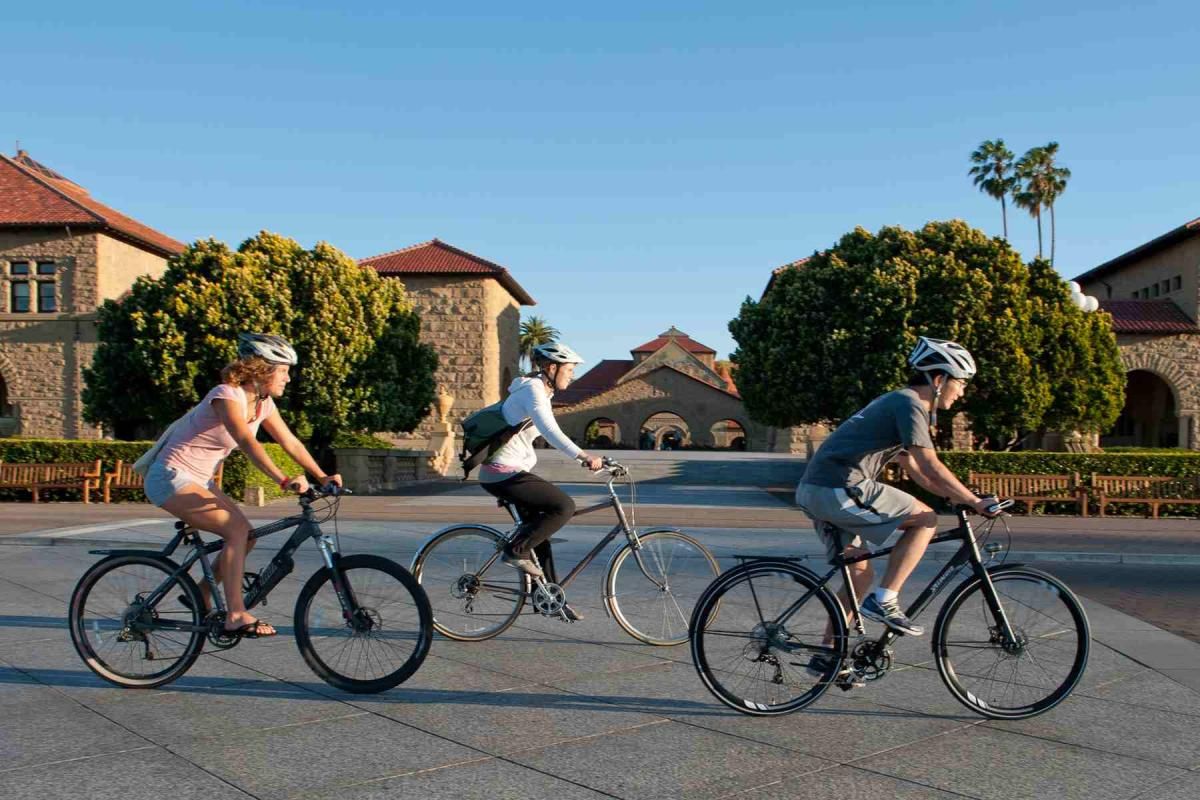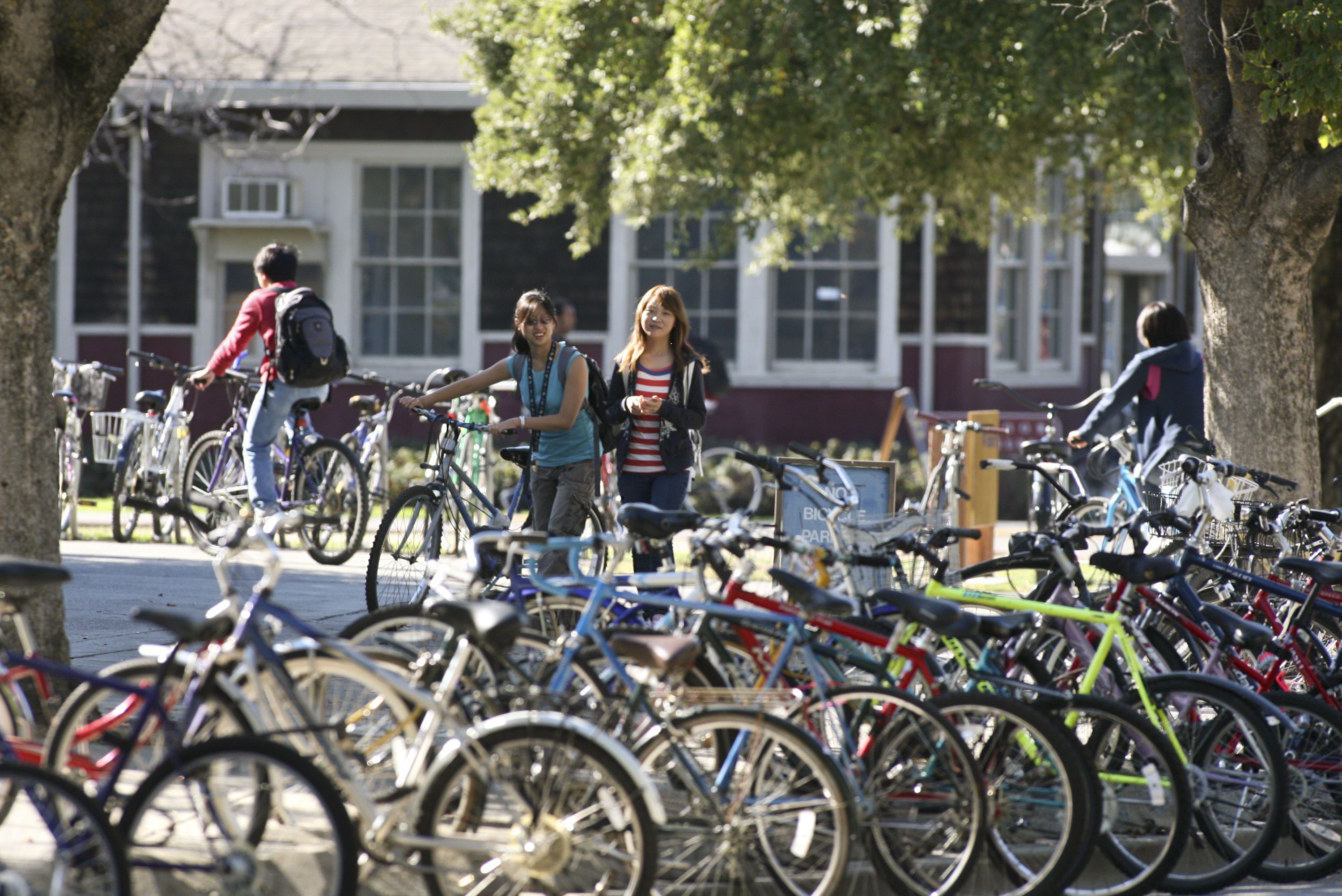Which AP Classes Matter Most to Colleges? Expert Tips for a Winning AP Strategy
Read now/f/64062/739x416/9435e2a2b8/cybersecurity-study-group.jpg)
/f/64062/1836x1228/856f14947e/stanford-min.png)
Unlock your bike and wipe the dust off your helmet, it’s World Car Free Day!
Campuses around America are advocating the reality of climate change and reinforcing the importance of environmentally options for transport to and from class.
Universities across the world are switching to more sustainable methods, with some schools making promises to reduce carbon emissions by nearly 100% before 2040. Here’s a list of some of the most environmentally friendly universities of 2019, from England to America.
Below we’ve compiled a list of colleges celebrating World Car Free Day today by ditching the cars and encouraging students to utilize public transport, carpools and bikes for their daily commute.

Princeton promotes safe and responsible bike riding and provides riders with more than 3,600 spaces for bikes around campus. The Cylab sources volunteers to teach and assist all members of the community with bike repairs, free of charge!
Flying home for summer, but need your bike for next semester? Princeton’s Moving & Storage Agency provides a bike pick-up and storage service for just $50 (with optional $5 insurance) all summer long! Princeton also links nonprofit organizations with students looking to donate their bike after use.

The JHMI shuttle and Blue Jay shuttle connect Hopkins faculty, staff and students across Baltimore. The busses also travel to Baltimore’s Penn Station to pick up commuters who arrive by train, bus and light rail. Baltimore Collegetown Shuttle is a free shuttle service to students and faculty to get around the city and between campuses.
JHU prioritizes bike infrastructure with convenient bike racks, covered parking and signs. The school also sponsors a bike share station for bikes with a strong network of commuter cyclists. Baltimore’s first outdoor bike repair station was the result of Johns Hopkins Bloomberg School of Public Health's community member advocacy to increase infrastructure. The university also sponsors Bike to Work Day every year!

CSU continues to invest in cycling infrastructure for a multitude of reasons including the benefit of getting a staying healthy, reducing the pollution created by motor vehicles, and the fact that it’s a cost-effective way to get around.
CSU offers more than 17,000 bike parking spaces on campus with racks conveniently located near the entrance of most building across campus. The university also houses a Campus Bicycle Advisory Committee whose mission is to promote a safe and enjoyable bicycle experience through awareness, planning education and to encourage the environmental and health benefits of bikes,

Georgia Tech encourages biking to and throughout campus as a healthy, convenient and low-cost, stress free form of transportation. The university offers bicycle and scooter safety classes to share the importance of road safety laws regarding riding on and around campus as well as general equipment set up and maintenance. All classes are free!
The BuzzBike program offers an inexpensive, fun, and eco-friendly transportation option. Bikes are available for rental to students for the summer, fall, and spring semesters, and are available on a first-come, first-serve basis. The rental fee is just $60 and $10 to purchase a helmet.
Starter Bike is a collaborative project between Georgia Tech students and the Atlanta Bicycle Coalition. Volunteers refurbish abandoned and donated bikes into low-cost, entry level bicycles for students and commuters in need of reliable transportation.

Penn’s Sustainable Transportation Initiative was launched in 2010 in support of UPenn’s Climate Action Plan with the goal of lowering the university’s carbon footprint. This initiative has implemented over a dozen programs or service enhancements designed to make bike commuting safer, easier and more affordable.
There are three bike repair stations situated around the Penn campus for students to use freely. Bike and property registration is available in the form of stickers which serve as a deterrent and increase the chances of recovery should the bike ever get lost or stolen.
Penn also guarantees a reimbursement for every student of up to $25 for their bike helmet with full-time faculty and staff eligible for a reimbursement of up to $240 annually for bike commuting expenses.

Stanford’s bicycle program is the only university to win the Platinum Bike Aware from the League of American Bicyclists (LAB) with two consecutive four-year awards. Recognition from the LAB has helped Stanford foster improvements in the bike programs implemented across campus.
The university offers free bike safety classes monthly at the Public Safety Police Compound for students and faculty looking to educate themselves safety precautions when bike riding. Stanford associates can also opt to take this class in lieu of paying your bike citation fee.
Never learned how to ride a bike? Stanford now hosts courses through the Bicycle Program to teach students how to ride if they’ve never learned. There are also 7 bicycle safety repair stands stocked with the tools needed to make minor repairs and a bike pump to inflate flat tires. The stands are available 24/7 and free to use at any time.

UC Davis’ bike program maintains and encourages the popular and beneficial use of a bike as an important mode of transportation to and from campus with a safe, secure and efficient cycling environment.
A rewards program for UC Davis affiliates is available for those who use an alternative mode when commuting to campus (including walking, riding your bike, taking the train or bus or carpooling), called the goClub.
The ASUCD Bike Garage provides a tool-loan service, friendly advice, and a space for those who wish to do their own work on the premises. Classes in bike maintenance and overhaul are often available through the ASUCD Experimental College. Fleeing campus for the summer? UC Davis also offers Summer Bicycle Storage for just $25!

The League of American Bicyclists recently awarded Harvard a gold-level “Bicycle Friendly University” award for the university’s different initiatives focused on bicycle safety and access. Bike riders are strongly encouraged to register their bikes for free with the Harvard University Police Department to deter theft and increase the chances of recovering a stolen bike.
One of the standout actions devised by Harvard is the bike commuter benefit which allows bicycle commuters to receive a $20/month reimbursement against costs associated with bicycle purchase, improvement, repair and storage.
Discounted helmets are also available for purchase for just $10. Bike repair stations are located around campus equipped with basic hand tools such as a screwdriver, wrench and tire level.

Boise city boasts as the fourth-highest percentage of bike commuters in America. The campus has many bike friendly features such as the Cycle Learning Center, which works as a non-stop cycling shop to promote bicycles and support riders through a variety of education, service and riding opportunities.
The center provides self-service stations open to anyone in need of a repair stand, basic tools, degreaser or rags. No fees is required and assistance is available when needed! The Bike Barn at Boise provides secure and inexpensive parking out of the weather and visibility of the public. There are two located around campus with affordable permits available for purchase.
Boise also offers students the opportunity to rent a bike for a semester ($120) or the full school year ($180). The rental also includes: a u-lock, front and tail lights, a helmet, free routine maintenance and exclusive access to the Bike Barn.
Bronco Biking Class is a free-bike commuting class held at the Cycle Learning Center every week. The goal of the class is to teach the rules of the road and best practices for cyclists to improve safety for all stakeholders and can be used for a citation reduction.

Located in one of the most bikeable cities in the world, Georgetown is connected to the winder DC metro area by a network of trails and on-street bike routes. There are more than 1,100 bicycle parking spaces around campus with additional covered bike parking available.
The university also offers free access to showers and locker rooms for faculty and staff who commute by bicycle to work. There are also showers and lockers available for students. Georgetown also has multiple self-service bike repair stations and air pumps.
The Capital Bikeshare is a point-to-point bike sharing system in Washington, D.C. where users can pick up a bike at one docking station and park it at another, making it a great option for students and staff commuting to Georgetown’s campus from the outer suburbs. LimeBack is another bikeshare system which eliminates docking stations, creating a broadly distributed system with bikes that are more accessible and affordable.